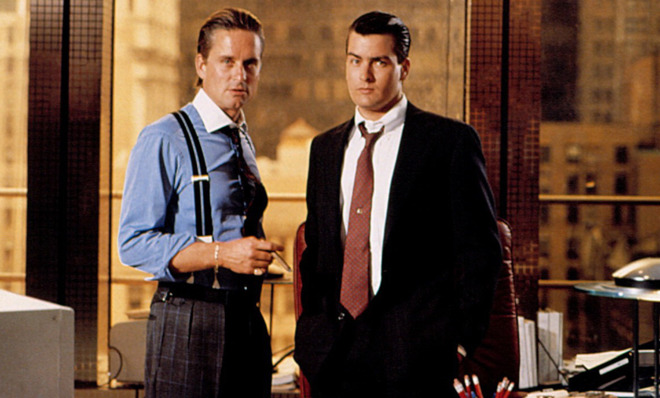You should fear 'the banksters,' not the stock market
Yes, big finance is probably out to empty your wallet. But don't let that stop you from investing.

A free daily email with the biggest news stories of the day – and the best features from TheWeek.com
You are now subscribed
Your newsletter sign-up was successful
My colleague Ryan Cooper argues that one key factor in millennials missing out on the current stock market boom is distrust in the financial system. Like very many millennials, he is apprehensive about becoming an investor, and cites numerous financial scandals from the past five years as events that have influenced this view:
I hear "we'll help you design the investment portfolio that fits your risk profile," and I translate "bankster scum are coming for your wallet."
That may sound a tad paranoid, but it's true! Mutual funds are, in fact, a giant scam. Barely a week goes by without some story about Wall Street stealing people's houses, or looting pension funds, or money-laundering for drug traffickers, and on and on. [The Week]
Actually, he's barely scratched the surface of the whirling maelstrom of scandals that have hit the financial system in recent years. It's probably worse than Cooper suggests. There have been many cases of rapacious banksters coming for the wallets of the naive, the greedy, or the plain unlucky. Say "finance" these days and most people will instantly think of Bernie Madoff or the 2008 crash. (The more learned in this perverse association game might even say "the LIBOR scandal" or "Goldman Sachs betting against its own clients.")
So I can completely understand the fact that lots of people are very distrustful of the financial sector after the last six scandal-plagued years. In many ways, I am too. The financial sector has been sick for a long time.
The Week
Escape your echo chamber. Get the facts behind the news, plus analysis from multiple perspectives.

Sign up for The Week's Free Newsletters
From our morning news briefing to a weekly Good News Newsletter, get the best of The Week delivered directly to your inbox.
From our morning news briefing to a weekly Good News Newsletter, get the best of The Week delivered directly to your inbox.
Ostensibly, the financial sector's purpose is to act as an intermediary between investors and businesses, to channel money to productive endeavors that produce goods and services that people want. If done well, this can be a valuable service from which all three parties — investors, businesses, and financiers — benefit. Unfortunately, instead of doing that, many firms and individuals in the financial industry took advantage of their position and power to parasitize investors, government, and the wider economy.
But just because the financial sector has been rife with corruption and treachery for a long time doesn't mean that it's wise to forsake investment altogether and just sit on cash, which is what many millennials who have money to invest are doing. Sitting on cash might express frustration and antipathy, but it isn't going to offer decent returns — in the current environment it offers negative real returns, i.e., you lose money to inflation. Nor will it improve the state of the economy, which relies on investment and spending for growth and jobs.
It's wise to remember that investment in "innovative financial products" like mortgage-backed securities — which is how so many people got screwed — isn't the same thing as investment in productive businesses through the stock market. You don't have to entrust your money to bankers and financiers and their complex financial products in order to invest. In fact, the opposite. Instead of trusting financiers who promise to beat the market for you, or sell you complex financial products, you can just buy a simple index fund.
Over my lifetime (I was born in 1987) investment in index funds such as the S&P 500 has been spectacularly profitable, a pattern which has held true for the last 200 years. And these decent returns have happened even though the financial system has been a treacherous mess for a significant portion of that time.
A free daily email with the biggest news stories of the day – and the best features from TheWeek.com
There's no doubt that the financial sector still has a heck of a lot to do to regain America's trust after the worst financial crisis for three generations. But if fear of "banksters" translates into a more general fear of investment, history suggests that the people who will lose out the most will be those who spurn investment and choose to fearfully sit on cash in the bank.
John Aziz is the economics and business correspondent at TheWeek.com. He is also an associate editor at Pieria.co.uk. Previously his work has appeared on Business Insider, Zero Hedge, and Noahpinion.
-
 The problem with diagnosing profound autism
The problem with diagnosing profound autismThe Explainer Experts are reconsidering the idea of autism as a spectrum, which could impact diagnoses and policy making for the condition
-
 What are the best investments for beginners?
What are the best investments for beginners?The Explainer Stocks and ETFs and bonds, oh my
-
 What to know before filing your own taxes for the first time
What to know before filing your own taxes for the first timethe explainer Tackle this financial milestone with confidence